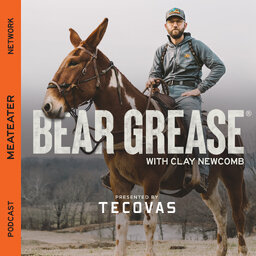 This Country Life
This Country LifeEp. 221: This Country Life - Hogs
Brent's talking wild hogs this week and sharing his brother Tim's story that could've turned tragic. You'll hear why so many put so much value on pigs in the past and how they've affected not only the environment, but also a lot of the creatures that share the habitat. Say it with us, "WOO PIG SOOIE!" It's time for MeatEater's This Country Life podcast.
Connect with Brent and MeatEater
MeatEater on Instagram, Facebook, Twitter, and Youtube
Shop Bear Grease Merch
